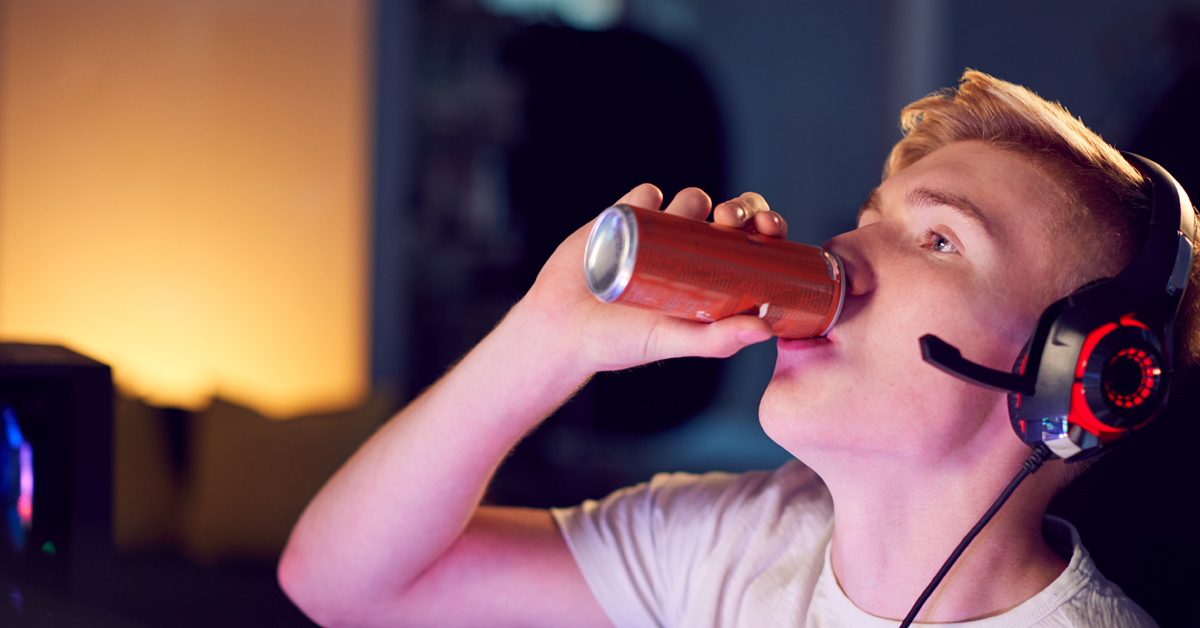Only a short time ago, teens didn’t drink coffee because parents feared it would stunt their growth. That old myth was disproven – just in time for the coffee shop boom in the 90s. Today’s teens have moved on from coffee to a new kind of energy-boosting beverage.
Energy drinks don’t stunt growth, but they have been proven to be dangerous to their health. In fact, an American Academy of Pediatrics report concludes that the caffeine and stimulants in these energy drinks “have no place” in an adolescent’s diet.
Energy drinks are a category of bottled drinks that contain caffeine, sugars, and stimulants. Parents used to worry about their teens drinking coffee Now, beverage makers have added sugar and stimulants for an extra boost. And this time, their concerns are soundly backed by science.
Here’s what’s in your teen’s energy drink and why you should be concerned
Some experts suggest limiting a teen’s caffeine intake to less than 100 mg per day, while others suggest that no amount of caffeine is safe. One 8 oz cup of coffee has about 100 mg of caffeine, depending on how it’s brewed. The caffeine in energy drinks varies, but it is typically the primary ingredient. Some energy shots have over 200 mg.
The FDA categorizes caffeine as a food additive and a drug. Large amounts of caffeine can cause children problems like:
- Abnormal heart rhythm
- Disrupted sleep cycles
- High blood pressure
- Increased anxiety
- Mood swings
- Restlessness, jumpiness
- Seizures
Added Sugars
The American Heart Association recommends children 2-18 have less than 25 grams (6 teaspoons) of added sugar per day. The added sugar in a 12 oz can of soda varies by brand but has up to 11.5 teaspoons of added sugars.
The added sugar in energy drinks also varies significantly, but a 12 oz can have up to 13.75 teaspoons. Some popular energy drinks sold in oversized cans have as much as 66 grams of sugar – 16.5 teaspoons.
Added sugar can be listed under various names, including brown sugar, corn syrup, fructose, high-fructose corn syrup, honey, maltose, sucrose, and more.
Drinking beverages that contain added sugars can be linked to these health conditions:
- Obesity
- Type 2 diabetes
- Heart disease
- Kidney stones
- Tooth decay
- Non-alcoholic liver disease
- Gout
Legal Stimulants
Along with caffeine and added sugars, energy drinks contain stimulants – that extra boost builds on excessive amounts of caffeine and sugar.
Those stimulants, like guarana, L-carnitine, and taurine, help make your teen feel more alert, energetic, and attentive. The downside is they can cause dangerous side effects like increased blood pressure, breathing rate, and heart rate. They may also disrupt sleep patterns and increase risky behavior.
It All Adds Up
When alone in reasonable amounts, sugar and caffeine in beverages are safe for adults. Sugar and caffeine can affect teens’ developing bodies and brains differently. Regular use of energy drinks may keep your teen awake in math class but keeps their body in a state of elevated stress, which affects their brain and cardiovascular development.
The temporary boost your teen gets from energy drinks is just not worth the potential for harm. The best way to boost their energy is to help them follow a healthy diet, exercise, and get enough quality sleep. And they need proper hydration from healthy beverages like water.
Stop worrying about your teen’s health – schedule an appointment with a pediatrician today!

